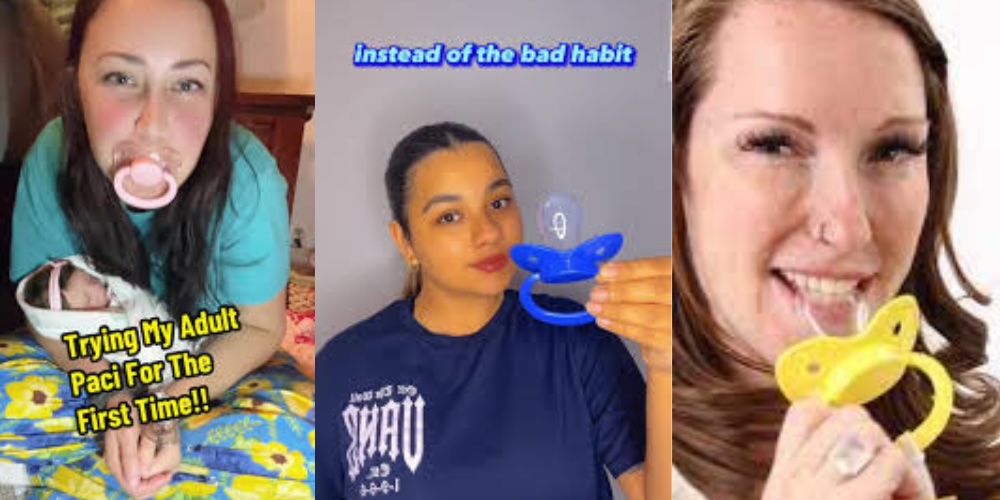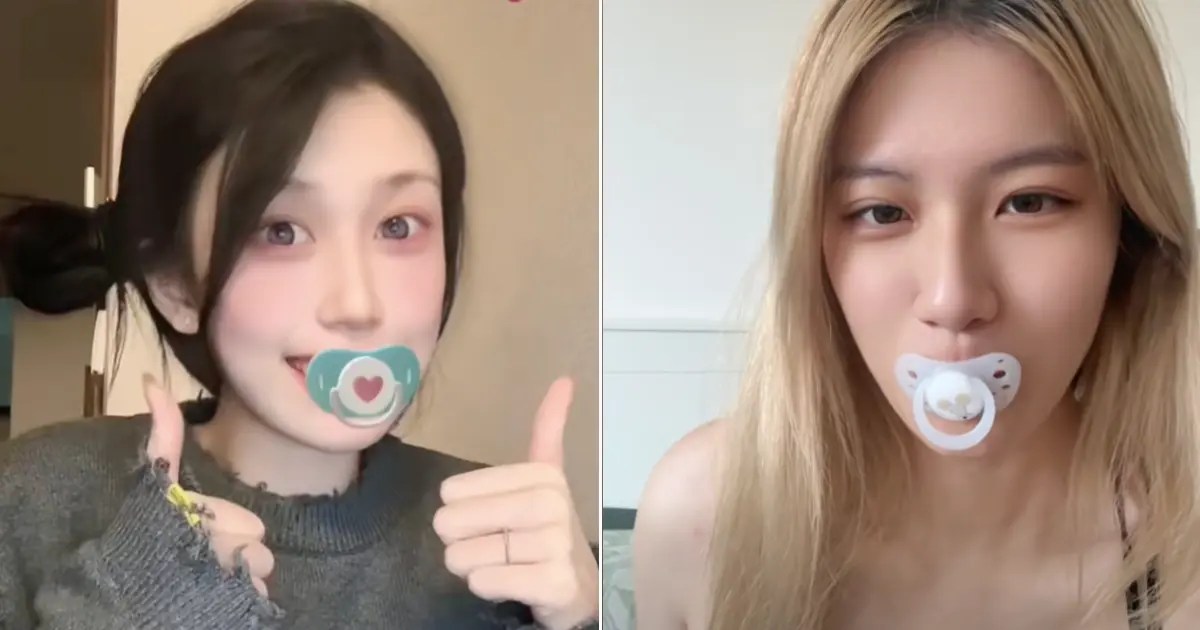The life of a baby is a pretty good one. Frequent naps, healthy food, and bespoke day trips make up the majority of a baby’s day, while the only stresses they encounter can be relieved with a literal pick-me-up. The urge to return to the good old days is understandable. A large chunk of Chinese adults are doing just that – with the help of adult pacifiers.
The South China Morning Post reports that adults in China are spending upwards of $70 for adult pacifiers, noted for their larger, adult-sized nipples and shields. Some Chinese retailers even claim to be selling as many as 2,000 every month. Users not only say they help relieve stress and anxiety, just like in babies, but are also used to help these suckers quit smoking (which is presumably not a problem for infants). One retailer even claims they can help with sleep apnea.
Whether it’s used for personal comfort or to help with falling asleep, it’s a lot cheaper than therapy.
In reality, there’s a psychological term for the phenomenon: regression. It’s a defense mechanism used by adults in challenging emotional circumstances where they try to cope with their emotions by reverting to behaviors associated with a previous stage of development when they felt safer and more secure. In short, when life gets overwhelming, they do something that once made them feel safe.
And what could pacify your constant worries about bills, meetings, and medical conditions better than an actual pacifier?
“It’s really soothing and helps me feel little,” said one reviewer.
 You can find everything on TikTok.
You can find everything on TikTok.
But the new adult binky, like the Labubu before it, isn’t a trend that will stay in China. It’s already making its way across the Pacific Ocean. American adults on TikTok are starting to post their own pacifier Toks, sucking on their Nuk Nuk as they write reports, commute through rush-hour traffic, or engage in other stress-filled adulting activities.
“I have a mild case of sleep Apnea, these pacifiers work wonders,” wrote another reviewer. “I sleep through the night without waking shortness of breath.”
While it sounds like a harmless trend, it might not be. Even pediatricians don’t recommend a pacifier as the first go-to means of soothing a baby. After age 2, there can be harmful dental effects (although we’re not sure if that applies to full-grown adults). But Tang Caomin, a dentist in China’s Sichuan Province, says it can do more than harm teeth.
“Using pacifiers over a long period may limit a person’s ability to open their mouth and cause pain when chewing,” he said. “By sucking the dummy for more than three hours a day, the position of your teeth might change after a year.”
One Chinese psychologist told the Post that an adult pacifier isn’t a real solution to the adult’s underlying problem, and that problem needs to be faced directly.
Listen: stress kills. We all feel it. How you deal with it is up to you. But anyone worried about how America’s Gen Z would handle a war with China’s Gen Z can rest assured that China’s kids have problems of their own.
‘Wolf Warrior:’ the Chinese movies secretly steering foreign policy
Blake Stilwell is a writer with degrees in Graphic Design, Television & Film, Journalism, Public Relations, International Relations, and Business Administration. He is a former combat photographer with experience in politics, entertainment, business, military, and government. His work has been featured on ABC News, HBO Sports, NBC, Military.com, Military Times, Recoil Magazine, Together We Served, and more. He is based in Ohio, but is often found elsewhere.


